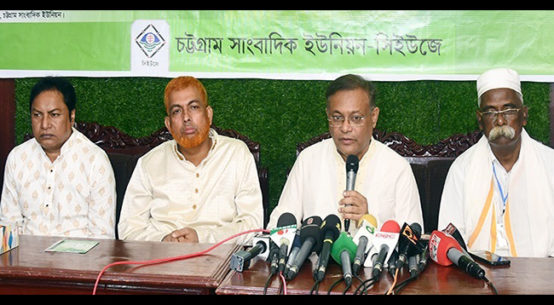
Experts and former civil servants believe that reforming the recruitment, promotion, transfer and posting systems is crucial for bringing discipline and transparency to the administration.
The Public Administration Commission has said that its primary objective is to establish a public-oriented, accountable, efficient and impartial administrative system.
Experts and former officials emphasise the need for legal and structural changes in these areas to achieve this goal.
The interim government has formed a commission to bring reforms in six key areas of the state, including public administration.
On October 3, the Cabinet Division issued a notification announcing the formation of an eight-member Public Administration Reform Commission, headed by Abdul Mujid Chowdhury, Chairman of Biman Bangladesh Airlines and a former adviser to the caretaker government.
The commission aims to create a public-oriented, efficient, accountable, and impartial administrative system, and its report is to be submitted to the chief adviser of the interim government within 90 days.
The commission comprises former secretary Mohammad Tarek, senior secretary of the Ministry of Public Administration Md Mokhlesur Rahman, former additional secretary Md Hafizur Rahman, Rizwan Khair, Prof AKA Firoz Ahmed from the Department of Public Administration at Dhaka University, and a student representative.
Talking to UNB, former secretary Abu Alam Md Shahid Khan noted that to ensure discipline and transparency in administration, it is essential to prioritise reforms in recruitment, promotion, transfer and posting procedures.
He suggested that if these areas can be properly addressed, transparency will improve significantly. For a public-oriented, accountable, efficient and impartial administration, the Public Administration Reform Commission must develop stringent policies and effective measures.
Shahid Khan said that clear policies must be established for recruitment, training, posting and promotion and these policies must be effectively implemented.
Although various policies currently exist, they are often applied arbitrarily. Those involved during the policy-making phase tend to benefit, creating conflicts of interest that must be addressed by the reform commission.
The former secretary added that while policies exist for posting, transfer and training, there are loopholes that must be rectified.
He underscored the need for transparent guidelines in these areas to avoid undue influence.
Another former secretary, Mohammad Firoz Mia, said that the current promotion process is outdated and does not reflect modern practices found in many countries.
He suggested that if systematic changes are implemented, it will prevent political biases from influencing promotions.
According to Firoz, the current manpower structure is outdated and requires a complete overhaul to adapt to new demands as they arise.
He insisted that there should be no political influence in recruitment, stating that the Public Service Commission (PSC) should appoint chairpersons and members based on merit rather than political considerations.
Commission chairman Abdul Mujid Chowdhury informed UNB that the first meeting of the committee took place on 14th October at the Secretariat.
The committee has decided to engage in discussions with various stakeholders, including government employees and field-level workers.
Chowdhury mentioned that the commission aims to listen to the public and consult with local job holders and chambers of commerce before commencing its actual work.
In response to a question, he reiterated that establishing a public-oriented, accountable, efficient and impartial administrative system is the commission’s primary objective.
“We have discussed the various aspects that need addressing. We will gradually process these discussions and move forward. We are expected to have a clear outline within two months,” he added.
When asked about the commission’s priorities, he said that the government’s directives will dictate their focus. “Determining our priorities will require more time,” he noted.
He also expressed optimism that if the reforms are implemented successfully, corruption and nepotism in recruitment, promotion, transfer and posting will diminish.
When asked about the feasibility of submitting a reform recommendation report within three months, he said, “The government has given us three months. We will certainly strive to complete it within that timeframe.”


